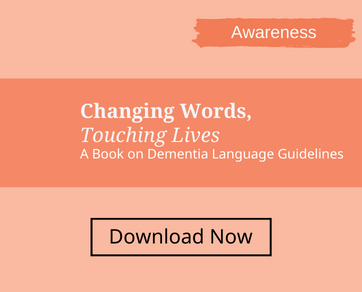Facing Dementia: Do I Have Dementia? (Ep 1)
Documentary tracks individuals who have noticed differences and changes to their minds and want to find out why, and shows the process of undergoing tests for dementia.
Gain access to pharmacological and non-pharmacological treatment options
While there are no available treatments that can reverse the cognitive decline that comes with dementia, there are still a variety of medications and psychosocial interventions that can help slow down the decline and help your loved one maintain their quality of life for as long as possible. Research has also shown that treatments tend to be most effective in the early stages of dementia.1
Begin seeking out support services and financial schemes that are suitable for your loved one living with dementia and yourself
There are a variety of programmes available for both persons living with dementia as well as caregivers:
- A Network of Care and Support
- Community Outreach Teams (CREST – Community Resource Engagement and Support Team)
- Community Intervention Teams (COMIT)
- Day Care Services
- Nursing Homes
- Respite Care
Find out more.
Additionally, caring for persons living with dementia may incur significant medical care costs. Fortunately, there are several financial schemes you may look into to help ease the financial burden and aid you in your financial planning:
- Seniors Mobility and Enabling Fund (SMF)
- Enhancement for Active Seniors (EASE)
- ElderShield
- CareShield Life
- Interim Disability Assistance Programme for the
- Elderly (IDAPE)
- ElderFund
- MediSave Care
- Caregiving Training Grant (CTG)
Find out more about financial schemes here.
It is important to note that the eligibility criteria for these services and subsidies often include being formally diagnosed, amongst other factors. This is to ensure that these aids are provided to those who are in need of them. It is also ideal to include your loved one in making these decisions when they still have the capacity to make informed decisions.
Help your loved one make the necessary lifestyle adjustments that will enable them to live well with their dementia
If your loved one is still working, they may have to think about potentially reducing their work hours, reviewing their current responsibilities, or speaking with their employer about making other reasonable adjustments at the workplace. In some cases, major career adjustments, such as changing jobs or stopping work completely, may have to be made.
The both of you can also discuss potential safety issues, such as driving or wandering, ahead of time.
Plan for the future of both your loved one and yourself
Following the diagnosis, it is important to review current legal, financial, and care plans, among other important matters while your loved one still has the capacity to make decisions for themselves. It is important to empower your loved one to, through discussions with family and care professionals, determine what arrangements they would prefer during each stage of their dementia. Doing this will also give both you and your loved one peace of mind and prevent future disagreements within the family.
Learn more about advance care planning here.
Loved ones will be better able to support the person living with dementia
Before a clear diagnosis is made, it is likely that you and your loved one may find it difficult to make sense of instances of memory lapses, communication problems and personality changes, which had not been common occurrences before. This lack of understanding often results in frustration and confusion, as both parties may not know how to deal with these changes.
However, a clear diagnosis allows for the realisation that these incidents are, in fact, symptoms of dementia. This makes it easier for your loved one, friends and family, to better understand your loved one’s condition as well as the challenges that come with it.
Learn more about the needs of persons living with dementia here.
Additional Resources

Ask the Expert: Do I Have Dementia? Where to Seek Support?
Tell us how we can improve?
- Prince, M., Bryce, R., Ferri, C., World Alzheimer report 2011: the benefits of early diagnosis and intervention. Alzheimer’s Disease International (2011). https://www.alzint.org/u/WorldAlzheimerReport2011.pdf

